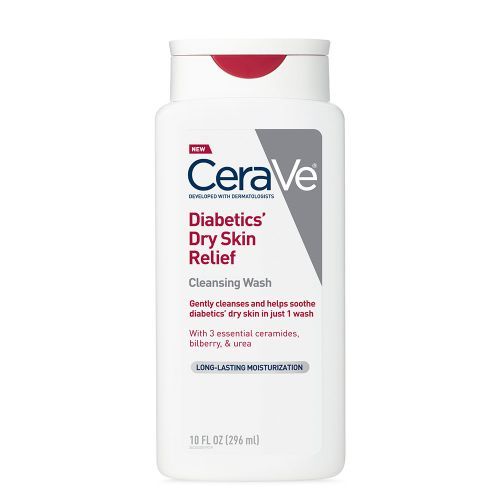There are a lot of questions that you may have with intermittent fasting. You want to make sure that you are doing it the right way and that you will be able to get all the benefits that are promised with this diet plan. This chapter will take some time to explore more about intermittent fasting and what you need to know to get it to work for you.
Is there anyone who shouldn’t fast?
For the most part, intermittent fasting is safe for most people to do. It’s an effective diet plan that focuses on healthy eating and getting the essential calories and nutrition that your body needs while restricting the windows that you’re allowed to eat.
With that said, some people should not go on an intermittent fast. This is mostly because there is concern that they will not be able to get the nutrition that they need. If you’re considered underweight, you should not go on this kind of fast. If you’re pregnant or breastfeeding, you need to take in nutrients throughout the day to support your child, so intermittent fasting is not the option for you.
In addition, there are times when you are allowed to fast, but you may want to make sure that you have some supervision from your doctor. First, if you have diabetes, either type 1 or type 2, you will need to do this with the help of your doctor. Some medications don’t work well with these fasts so you will need to be careful.
In addition, if you have high uric acid or gout, you may need to be careful about going on an intermittent fast. Will I go into starvation mode if I am fasting? There are a lot of myths about fasting. These myths are repeated so often that sometimes they are seen as truths. Some of the fasting myths that you may
know about include:
Fasting makes you starve
Fasting will you feel hungry
Fasting will make you overeat when the fast is over
Fasting will make you lose muscle tone
These have been disproven many times over. Instead of the body going into starvation mode, the body will start burning up the extra fat stored inside. This will help you to get rid of that stubborn belly fat and will help you become healthier, especially if you have been overeating for a long time.
Over a year, you consume about 1000 meals and over 60 years, you will eat about 60,000 meals. To say that skipping three meals during this time will cause a lot of harm is kind of silly. The breakdown of muscle tissue only occurs at low levels of body fat, and if you are at that point, then you shouldn’t go on a fast.
However, most people will not have this issue. Our bodies are actually evolved to handle periods of starvation and will be able to effectively deal with it.
What are some side effects of going on a fast?
There are a few side effects that you can deal with when you are on a fast. These are usually pretty simple, and they will go away after your body adjusts to the diet and you get familiar with eating habits that work well. Some of the side effects that you may experience include:
Constipation: This is a common side effect. If you’re experiencing constipation, using some laxatives can to help to alleviate the pain or discomfort.
Headaches: Some people experience headaches when they get started on a fast, but these will disappear within a few days. A good way to deal with this is to eat some extra salt each day.
Mineral water: If you are dealing with your stomach gurgling, then it is a good idea to use mineral water.
Other side effects: You may also deal with issues such as muscle cramps, dizziness, and heartburn. Adjusting your diet and waiting a few days will help to alleviate any discomfort.
How do I manage hunger?
The most important thing to realize is that this hunger will pass. Most people worry that the hunger will keep growing until it is intolerable, but this usually isn’t the case. Hunger comes in waves. Ignoring it and drinking some water, tea, or coffee will help you to cope with the hunger pains.
During your extended fast, you might notice that the hunger will increase into the second day. After you get past that time, you will see that it recedes, with many people reporting that they have a complete loss of hunger by day 3 or 4.
At this time, your body is powered by fat. This means that the body is eating its own fat for breakfast, lunch, and dinner, so you are no longer feeling so hungry. So, if you can last a few days on the intermittent fast, the hunger pains will go away, and it will be easier to deal with.
It is important to keep in mind that when you are first starting out your body is likely to struggle with fasting because it is used to have ready access to fuel all the time. Most of us are used to eating, even when we are not hungry, and the body will fight against your new habit with extreme hunger pains in an effort to get back on track.
However, whether you go with the 16/8 fast, the 5:2 fast, or the alternate day fast, the truth of the matter is that you are not putting your body through anything it cannot handle. As such, as long as you stay the course, things will likely settle down in about a week or so once your body realizes that it is not, in fact, starving.
In order to make the transition as manageable as possible, the first thing you are going to want to do is to add more caffeine to your diet. While not acceptable in the long-term, this is a great way to keep the worst of the hunger pains away when they are at their sharpest. Additionally, you will want to ensure that your schedule is full during this time as the more activity your mind has to focus on, the faster time will fly.
Will my fasting burn muscle?
This is a common misconception that a lot of people deal with when they are considering an intermittent fast. During the fasting periods, the body is first going to break down the glycogen into glucose so that it can be used for energy.
After the glucose is all gone, the body will increase how much fat it’s breaking down and use that for energy. Excess amino acids, which are the building blocks of protein, can also be used for energy. However, the body is not going to use its own muscle as fuel unless you’re not eating for weeks on end.
Fasting is a practice that has been done for thousands of years. It’s safe and effective, and unless you go for weeks without eating (and none of the intermittent fasting options ask you to fast for more than 24 hours), there is no reason to worry about losing excess muscle.
How do I break the fast?
Breaking the fast is one of the hardest parts of this diet and is likely the true test of whether or not you will be able to sustain it in the long-term. When you break your fast it is important to do so in moderation for multiple reasons.
First, it is important to not add too much to your system all at once as this can put stress on your body and damage your stomach and intestines if repeated too often. Additionally, if you allow yourself to gorge when your resolve is at its weakest then you are far more likely to overeat and undue all the hard work you have done by fasting in the first place.
The best way to ensure that this does not happen is to plan ahead. Prepare the meal while you are waiting for the fast to end and ensure that it has very
clearly defined portions. A hearty omelet is a good choice as you can fill it full of healthy, filling items and you can’t easily go back for seconds.
Meanwhile, a full pot of oatmeal is a poor choice as you could easily go through it without thinking twice.
Can women fast?
Yes, women can fast. The only exception to this rule is if you're underweight, pregnant, or breastfeeding. This is because you need those extra nutrients and should not go so long without eating in these situations. Other than that, it is perfectly fine for women to fast. In addition, the average weight loss with fasting is the same for men and women so it can be effective for both genders.
Finally, if you are already committed to an exercise plan, then you will want to ensure that you exercise
right before you break your fast so that your body will get the fuel it needs to make the most of your efforts.
RELATED POSTS
Why does
intermittent fasting work?
Basic Tips for
Intermittent Fasting
How Our Modern Diet
is Failing Us?
Why Should I Try
Intermittent Fasting?
The Basics of Eating on an Intermittent Fast
Using The Ketogenic Diet With Intermittent Fasting
Around the Web



































